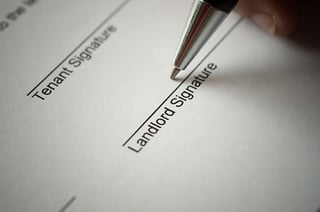.jpg?width=1024&name=cover%20image%20(4).jpg)
As the Western Cape continues to brace for Day Zero, many questions have been raised about how the water crisis affects the rights of tenants and landlords. Both parties have contractual obligations to fulfil as part of their lease agreements, but what happens when these become impossible because of circumstances outside of our control?
According to Cilna Steyn, Director of SSLR Attorneys and advisor to the Rawson Property Group, a drought of this severity is classified as an Act of God under South African Common Law. As such, both parties are indemnified against claims made by one another for damages suffered as a direct result of the crisis.
“To put it simply, nobody can be held responsible for not fulfilling an obligation if the drought has made that impossible to do,” says Jacqui Savage, National Rentals Business Development Manager for the Rawson Property Group.
For tenants, that means the lack of water supply can’t be used as a convenient excuse to cancel a lease, penalty-free.
“Any lease that falls under the CPA – can be cancelled by the tenant with twenty business days’ notice, subject to reasonable penalties,” says Savage.
As stated above, a tenant may not hold a landlord in breach of the lease agreement due to non supply of water. It’s an Act of God – the landlord can’t be held responsible – so early cancellation penalties will still apply.
Likewise, landlords can’t blame tenants for failing to maintain items that require access to water.
“Things like gardens and pools are typically the tenant’s responsibility to maintain,” says Savage, “and under normal circumstances, tenants have to foot the bill for any repairs arising from their neglect. Of course, water restrictions now make watering gardens and backwashing pools impossible, which means landlords can’t hold tenants responsible for damages that occur as a result.”
That doesn’t mean landlords are powerless to protect their investments, however, or that tenants can completely ignore their maintenance responsibilities and claim “Act of God”.
“There’s a lot you can do to prevent drought damage that doesn’t require doing the impossible,” says Savage. “Tenants are still expected to take reasonable measures to prevent unnecessary damage, including complying with restrictions and collecting greywater for strategic use. When it comes to bigger issues like dealing with stagnant pool water and protecting dry pool pumps, there’s a dual responsibility for landlords and tenants to find workable solutions, together.”
Drought damage isn’t the only issue tenants and landlords face, however – there are cost implications that need to be considered as well.

“In many cases, water and utilities are included in monthly rental,” says Savage. “With water tariffs rising so steeply, landlords can’t be expected to just absorb this cost. Depending on the wording of the lease, most agreements make provision for municipal tariff increases to be passed on to the tenant as long as the landlord can provide proof of the higher charges.”
This knife cuts both ways, though: should Day Zero arrive and water supply gets entirely cut off, Savage says landlords can’t continue to charge tenants for services they no longer receive. Tenants would be within their rights to negotiate a reduced rental amount to account for the reduced utilities charges that their landlord would be paying on their behalf.
“The key is really just for everyone to be as fair and as understanding as possible,” says Savage. “The law is there to protect us, but if we act with empathy and work together to the best of our abilities, we can get through this crisis without needing to resort to costly legal intervention.”